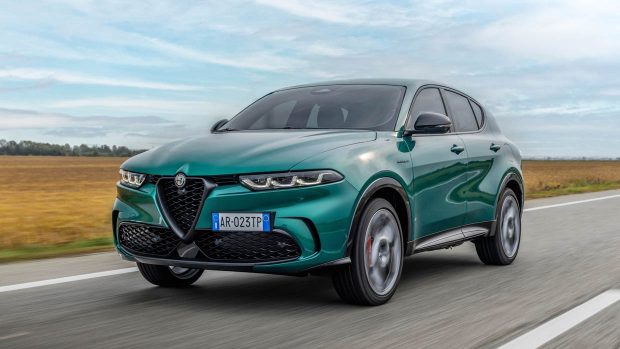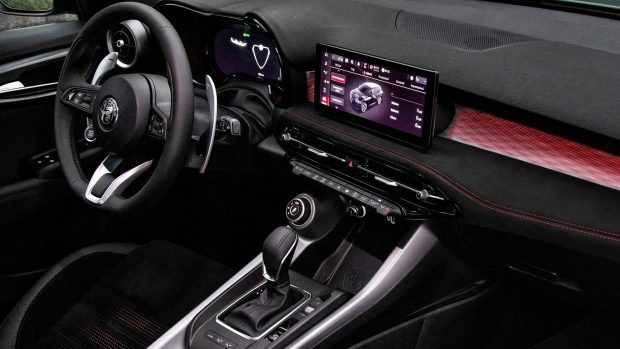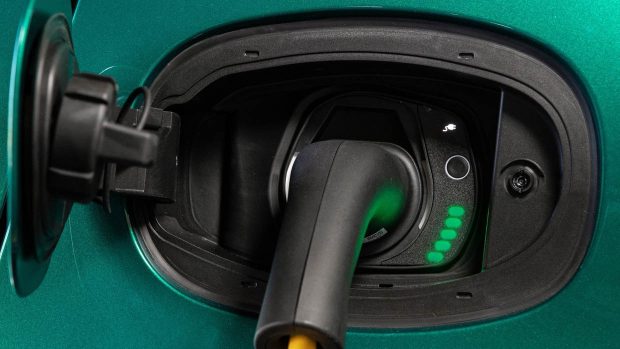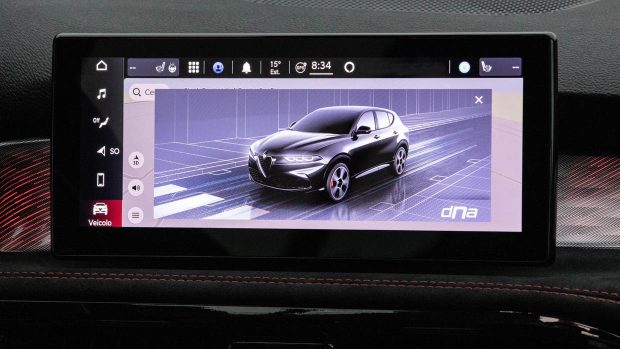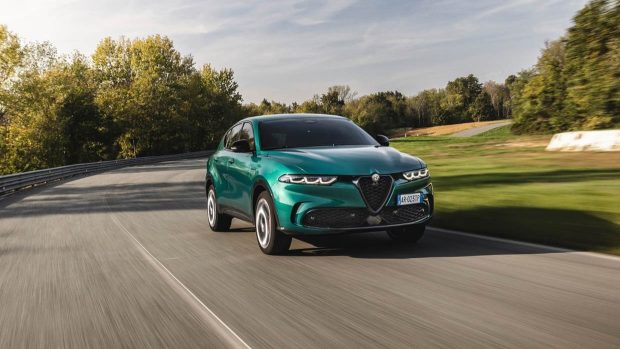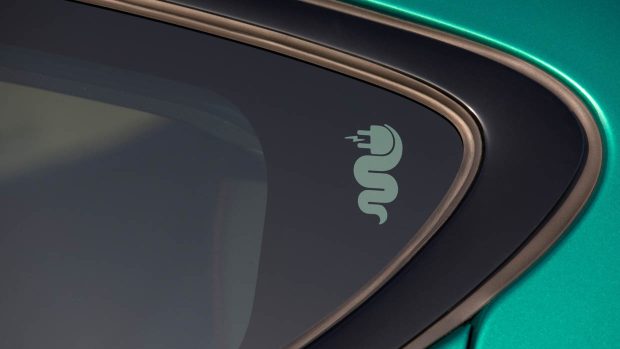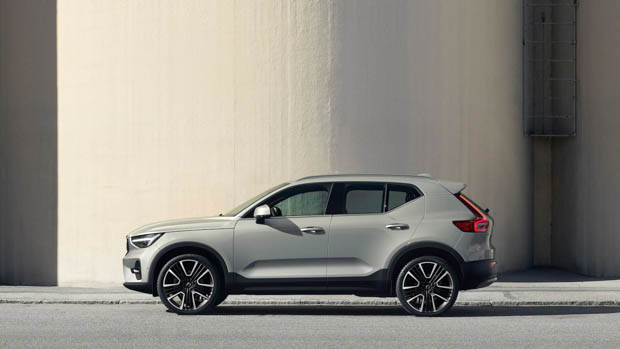-
Car Reviews
- All reviews
- Midsize SUVs
- Small cars
- Utes
- Small SUVs
- Large SUVs
- Large cars
- Sports SUVs
- Sports cars
- Vans
Latest reviews
- Car News
-
Car Comparisons
Latest comparisons
- Chasing Deals
Italian PHEV has a hefty $21,100 premium over the mild hybrid Tonale Veloce, but the small SUV boasts of being the most efficient Alfa Romeo ever
Alfisti traditionally brag about their cars being the most soul-stirring. The fastest. Or simply the most beautiful Alfa Romeo ever.
Buyers of the new Tonale Plug-In Hybrid Q4 – on sale now from $77,500 and arriving in Australian dealerships from October – can instead boast about their Alfa being the most efficient offering in the brand’s storied history.
It may not be the sexiest of brags, but this PHEV small SUV is being heralded as “a milestone for the Alfa Romeo electrification process.”
And the brand’s hanging a lot on the new car. It’s key for transitioning to Alfa’s fully-electric future: by 2027 the carmaker promises to do away with its trademark emotional combustion engines and offer only full electric vehicles.
This PHEV kick-off isn’t coming cheap.
The Tonale PHEV Q4’s chunky $77,500 before on roads sticker price is $21,100 over a hybrid Veloce ($56,400), and $27,600 above the entry-level Tonale Ti ($49,900).
The Italian-made plug-in Tonale promises an all-electric range up to 60km (WLTP) – which isn’t the longest PHEV range out there but still far more than the typical Australian commute.
The battery is a 15.5kWh lithium-ion unit, and the car comes equipped with a 7.4kW AC on board charger and a Type 2 charging port for public charging.
At a peak 7.4kW AC charge (possible with a home wall box charger), Alfa promises the battery can go from empty to fully charged in less than 2.5 hours.
Performance statistics are decent without being especially heart-racing for the traditional Alfa fan.
The electronic all-wheel drive Tonale plug-in combines a 132kW 1.3-litre four-cylinder petrol engine with six-speed auto gearbox turning the front wheels, backed by a 90kW/250Nm electric motor over the rear axle.
Combined power is 208kW, offering a 0-100km/h sprint of 6.2-seconds.
The official economy (WLTP) is 1.14L/100km, but as we know, plug-in hybrid figures depend greatly on usage and how often the petrol engine’s called into action.
The theoretical petrol-electric range is around 600km, while our overseas test over a 100-kilometre test loop saw the Tonale PHEV return 4.2L/100km.
Inclusions on the flagship PHEV mirror that of the Tonale Veloce.
Highlights include Alfa’s active dual-stage valve suspension, 19-inch diamond cut alloys, full LED Matrix headlights, Dark Miron body kit with matte inserts, Brembo red brake calipers and an Italian flag on the exterior mirrors.
Inside are perforated black leather accented seats (heated, ventilated and power up front), double grey stitching, aluminium pedals, shift paddles and door sills, custom ambient lighting, sunroof, 10.25-inch infotainment, wireless CarPlay and Android Auto, wireless phone charging, Harman Kardon audio and 12.3-inch digital driver display.
Safety is comprehensive with 360-degree camera, all-round park sensors, self-parking, active blind spot and rear cross traffic alert, radar cruise control with stop & go, lane support and traffic sign recognition.
Options include 20-inch grey finish alloys for an extra $1500, while paints other than white (red, black, grey metallic and blue metallic) attract a $1600 premium.
Hero Montreal Green paint is an extra $2500.
Natural prestige rivals include the Audi Q3, BMW X1, Volvo XC40 and Mercedes-Benz GLA, none of which are available as a plug-in hybrid.
Mazda’s new CX-60 PHEV (from $72,300) is a larger SUV pushing for premium recognition, as is Peugeot’s 3008 GT Sport plug-in ($84,790).
But the lure of full electrics will be strong at this price. A Volvo XC40 Pure Electric can be had for $73,990, while the Mercedes-Benz EQA 250 is from $81,700, both in the same small SUV space as the Tonale PHEV.
As we reported last month, in 2022 Alfa Romeo had its lowest Australian sales performance since 1998, shifting just 571 cars.
The importance of the Tonale premium SUV – in both mild hybrid and PHEV guises – can’t be overstated to help turn around the slide.
Latest news
About Chasing cars
Chasing Cars reviews are 100% independent.
Because we are powered by Budget Direct Insurance, we don’t receive advertising or sales revenue from car manufacturers.
We’re truly independent – giving you Australia’s best car reviews.
